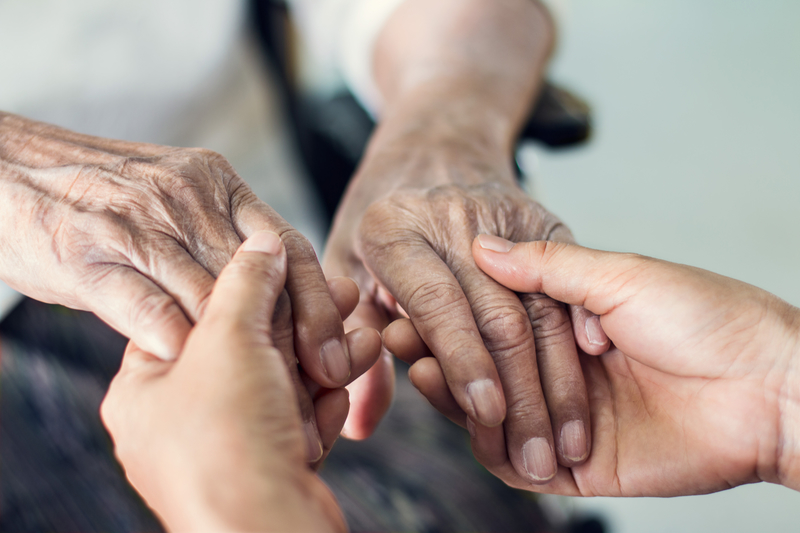How to Determine if Your Family Member Needs Help and How You Can Assist without Overstepping

It’s that time of year: holiday music, traffic, and annual pilgrimages to see faraway family members. For many of us, this is the first time we have seen those family members in two years. Covid has necessitated prolonged isolation that has impacted the mental health and cognitive status of many older adults. Especially this year, the holidays are a good time to check on our loved ones and assess what help they might need to safely age in their homes. However, it is important to approach that discussion with respect for your elder’s independence, or your offers of help may be rebuffed.
Determine if Your Family Member Needs Help
Prepare a mental checklist of things to look out for and to discuss with your loved one. It might include the following:
- Does the elderly loved one require help with housekeeping, dressing, bathing, shopping and meal preparation, or medications?
- Are they isolated or lonely? How often do they socialize with others?
- If living with another, are they dependent on that person for care?
- Is that person an appropriate caregiver?
- Does the caregiver understand the medical conditions the elder has?
Make the most of your visits by taking some private time with your loved one to discuss future planning. Sometimes a senior needs help but is afraid their children or other relatives will force them out of their home if they share any concerns or difficulties. So, reassure your loved one that you want to help them live the life they want. Your support and guidance can help prevent serious accidents and future health complications, allowing them to remain in their home longer.
Sometimes seniors do not recognize their decline or limitations. During your visit, keep an eye out for warning signs of self-neglect or of exploitation by others. Signs of self-neglect or danger can include the following:
- The individual appears confused or disengaged.
- They are no longer able to handle meal preparation, bathing, bill paying, etc.
- The refrigerator is empty, or it is clear the kitchen has not been used recently.
- The older person is drinking too much or is abusing drugs.
- The home is cluttered or dirty, which represents a substantial change.
- The senior is falling frequently.
- Their car is scratched or dented, or you observe the senior driving unsafely.
- Your loved one appears undernourished, dehydrated, under-medicated, or is not getting care for problems with eyesight, hearing, dental problems, incontinence, etc.
Risk of Abuse and Neglect
As more seniors are living longer, more are living alone. This increases their risk of abuse and neglect. The pandemic has amplified this problem due to the increased social isolation and stress it has wrought. Perpetrators look for opportunities when their victims are most vulnerable. The death or incapacity of a spouse, health challenges, diminished capacity, and social isolation all increase susceptibility to fraud and exploitation.
Over the last two years, many seniors have turned to technology as a social outlet. Individuals who knew to limit phone interactions with potential scammers may find themselves willing to engage in online conversations just to have some personal contact. In addition, seniors are increasingly using online shopping and banking but may not have the technology savvy to protect themselves. In addition, criminals are quite adept at mining obituaries and social media to gather information to target their victims.
Families can ameliorate these factors by remaining as connected as possible with their loved ones. You can also educate yourself about the latest scams and share that information with older family members. Research has shown that individuals who are aware of a scam are substantially less likely to fall victim to it.
Signs of Elder Exploitation
Elder exploitation commonly occurs in early cognitive decline, so if your loved one is showing evidence of memory loss or other cognitive impairment, look for signs of elder abuse and exploitation:
- A new or quickly-intensified relationship with a family member, friend, or caregiver.
- Increased dependence on that individual to handle tasks they previously handled independently.
- New suspiciousness or paranoia about a close loved one the senior always trusted in the past.
- Increased voluntary isolation from family (i.e., change in communication level or patterns).
- Unwarranted repairs or renovations or mention of a “helpful” neighbor who will handle repairs needed.
- Apparent neglect or abuse of a family pet.
- An abundance of online shopping packages, mail, and/or phone solicitations for money.
- Sudden or unexplained changes in spending habits, accounts, or financial institutions.
- Unexplained checks, transfers, or credit card use.
- Missing checks, statements, or other financial records.
- Lack of knowledge about their own finances, or inability or unwillingness to explain changes such as those listed above.
Providing the Help Needed
Discuss any concerns with your loved one open and honestly. Ask them directly if they are afraid of anyone, if anyone is taking things without their permission, if anyone is asking them to do things they are not comfortable with, or if anyone is humiliating them. However, remember that overly confrontational tactics can backfire, as the perpetrator often primes the victim to be suspicious of family members and fosters paranoia that the family wants to control, abuse, or institutionalize the older adult. Professional help may be needed to determine the best way to help a senior without further alienating them.
If you believe your loved one needs help, try to enlist other family members to offer support. If your loved one appears to be in danger and won’t accept help, you can call your local Adult Protective Services or Office on Aging. If the person lives in a licensed facility, call the local Long-term Care Ombudsman. You can also introduce yourself to responsible neighbors and friends. Give them your address and phone numbers in case of an emergency. It can be difficult to know when to intercede, but taking time during visits to observe, listen, and understand what your loved one is experiencing, is the first step.
If you have any questions about this post or any other elder law matters, please feel free to contact me at ssiegel@norris-law.com.




